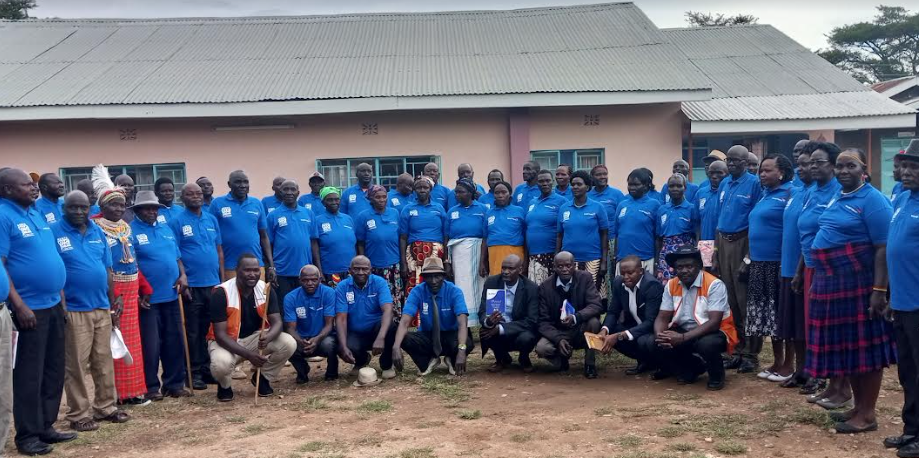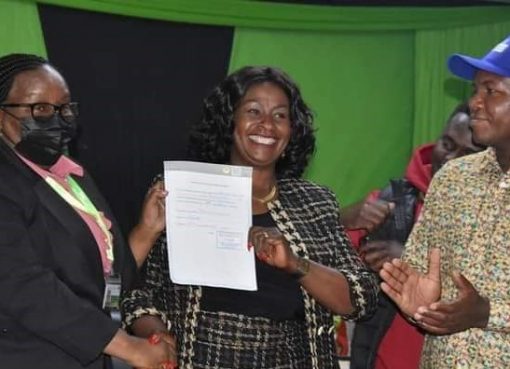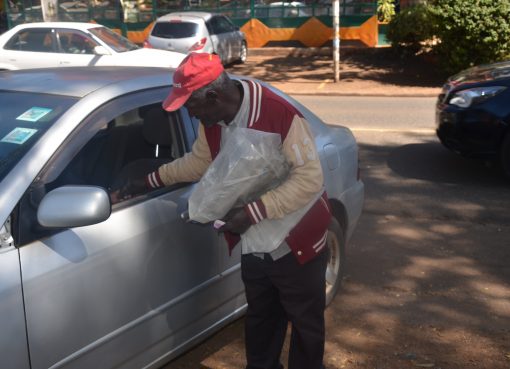West Pokot County Chief Officer for Culture, Tourism, Heritage, and Social Services, Mr. Paul Lalat, has called upon child rights stakeholders to collaborate with the government to create awareness about the harmful effects of female genital mutilation.
Mr. Lalat said the Pokot Council of Elders has mounted efforts to end FGM through the writing of anti-FGM customary laws to curb the vice in the area. “The laws will enable our young girls to evade the vices of FGM and child-forced marriages,” he said.
The Chief Officer said this Sunday during a three-day conference held at World Vision’s Hall in Kipkomo sub-county, where 70 elders, including men and women, drawn from the 20 wards of West Pokot County were trained by the World Vision Kenya Organisation on efforts to stamp out the retrogressive cultural practice.
According to elders, the anti-FGM cultural and customary laws they are drafting, dubbed “Pokot cultural and tradition laws and regulations” will provide a framework for the eradication of FGM by sensitising the community that FGM is illegal and a violation of human rights.
Pokot Council of Elders Assistant Secretary Mr. Philip Lomong’in acknowledged that the cut has hampered efforts to discontinue the outlawed cultural practice and that the community stands to benefit a lot once the barbaric behaviour is eliminated.
Lomongin said they would not give up on the fight against FGM and issued a dire warning that once the anti-FGM cultural and customary laws were put into effect, perpetrators would be subjected to the full force of the law.
The Assistant Secretary noted that in order to combat FGM more effectively, laws need to be enforced, people need to be educated, communities need to be involved, and women and girls whose rights have been violated need to be supported.
Lomong’in noted that community members have to play an important role as individual agents in the fight against FGM, children’s early marriages, and teen pregnancy.
“FGM, teen pregnancies, and child forced marriages are issues that need our collective efforts in the fight; we need everyone to be a teacher on the effects of FGM by ensuring children are protected and are taken to school. We have a written document, and we are discussing it and ratifying it,” Lomong’in said.
Lomong’in said elders are committed to consultative meetings with the community and stakeholders in initiatives towards the fight against FMG among the Pokot community. He said written customary law will guide how the law will be applied to a perpetrator who is found to have violated the rights of women and girls.
He said the laws will help to address the biggest challenge in the struggle against FGM if the county government adopts them as legislation that will outlaw the practice.
Elimination of FGM by 2030 is one of the targets of Target 5.3 of the Sustainable Development Goals.
According to a recent study by the Kenya Demographic and Health Survey 2022, the FGM prevalence rate across the country has reduced from 38 per cent in 1998 to 15 per cent in 2022 and from 21 per cent in 2014, but in West Pokot County, the prevalence stands at 74 per cent.
The FGM vice has become so pervasive that Pokot elders have found it necessary to have a written anti-FGM law action plan to ensure that the harmful cultural practice is completely abandoned.
The government, NGOs, and other stakeholders have been raising awareness and knowledge about the effects of FGM and working to stop the practices across the most affected counties in Kenya, including West Pokot County.
Stakeholders have also worked to increase women’s economic independence, support health education, fund schools, and provide opportunities for women to engage in income-generating activities in an effort to make them stop the vice.
An elder, Mr. William Lopetakou, alias Baba Culture, said that the elders have the power to influence the community to abandon the vices since they are the custodians and gatekeepers of culture.
“We want to transfer the knowledge the elders have to written documents. We are the authority to decide important issues in the community,” Lopetakou said.
He said elders will be moving around to raise awareness and sensitise the community to the new community cultural laws that are against violence against women and harmful traditions.
The elder said it was sad to note that some people do not fear impregnating a young girl since they think the laws are not tough.
Another elder, Ms. Elizabeth Mworor, said that many young girls have dropped out of school due to teenage pregnancies.
Mworor said it was sad that in the current generation within the community, a number of women still face violence from their husbands when they try to protect their children from early child marriages.
The World Vision Manager for Kenya’s Big Dream Project, Mr. Moses Chepkong’a, said that the rate of FGM in West Pokot County differs from one ward to another.
“In some areas, the rate is between 60 and 70 per cent; Kipkomo sub-county and Lelan are below 20 per cent, according to the survey done by the World Vision Organisation,” Chepkong’a said.
According to World Vision Kenya’s Children’s Officer in West Pokot County, Ms. Teresa Cheptoo, the elders have committed to bringing an end to the vices against women and girls.
Cheptoo noted that she decided to engage the elders in the writing of the laws since they are custodians and gatekeepers of the culture. She said that using elders and community leaders is the best approach to fighting FGM.
World Vision Kenya West Pokot branch Project Officer Mr. Billy Ouma disclosed that the organisation will put in place measures like economic empowerment and value chain development in the community for an alternative livelihood programme in an effort to eradicate the practice.
By Anthony Melly





